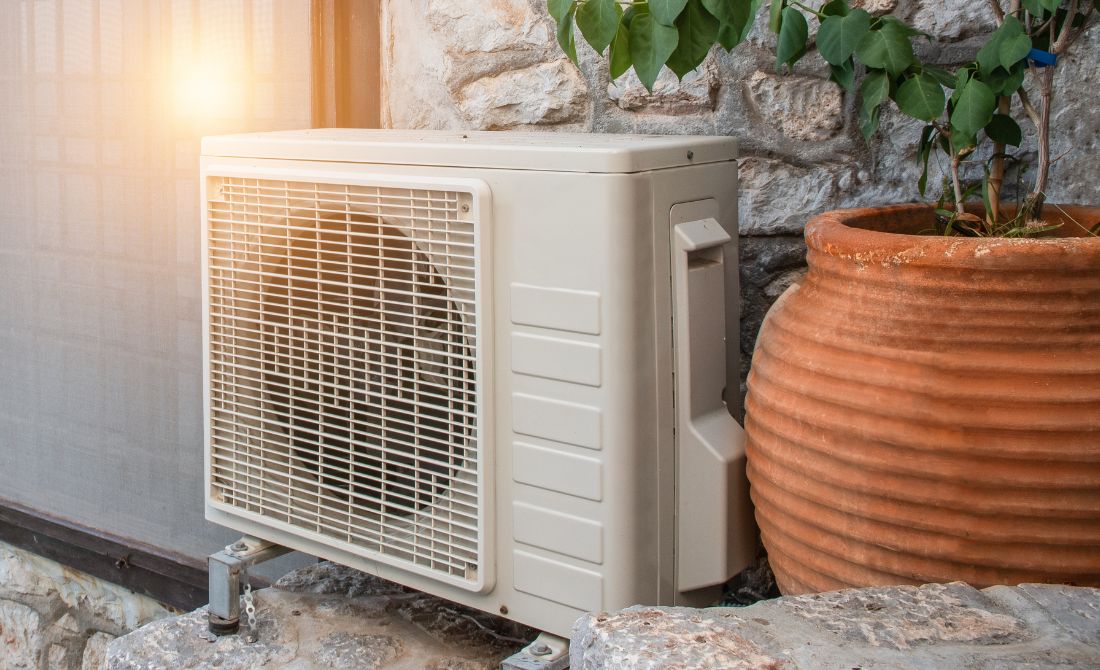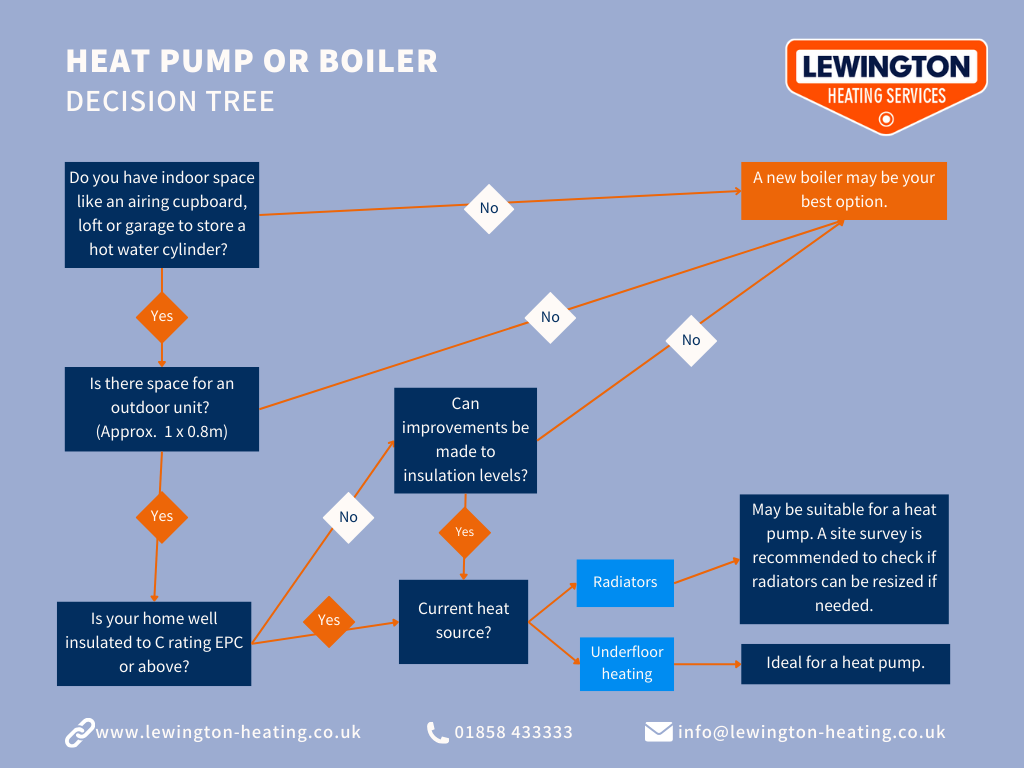With the push to reach the UK’s target of net zero carbon emissions by 2050 and the resulting new grants for renewable energy systems for UK homes, there is no doubt you will have heard of heat pumps by now.
They are set to play a huge part in reducing carbon emissions, so it’s worth finding out if they are right for you and your home.
How do heat pumps work?
Air source heat pumps sit outside the home and look very similar to air conditioning units. They work by pulling in heat from the surrounding air and condensing it to heat up water, which is then stored in a cylinder, ready to be used throughout the home. The system is run on electricity and the outdoor and cylinder units are connected by pipework.
Is a heat pump right for my home?
The ideal home for a heat pump is one which is well insulated and has a garden. It’s best if a heat pump is installed when the property is built, but that doesn’t mean you can’t put one into your existing home. Heat pumps and other renewable systems will become a default for new builds from 2025, when it will become illegal for new builds to use non-renewable heating systems.
For existing properties
In theory, any house can have a heat pump installed. But here are some things to consider and discuss with a professional, as every home is different.
- Insulation
- Heat pumps heat water to a lower temperature than boilers. So, if the property doesn’t have adequate insulation, it would be neither cost or energy efficient and would take a long time to heat the home.
- Underfloor heating or large radiators
- Because heat pumps don’t heat water to temperatures as high as boilers, the delivery system needs a larger surface area to make up for this. This means you may need to consider doubling the number of radiators in one room or installing double panel radiators. In some cases, your existing radiators may work with high temperature heat pumps, but this is something to discuss with a professional.
- Space outside for the heat pump
- Because heat pumps work by extracting heat from the air, they need to be installed somewhere where there is plenty of airflow. They also need to be somewhere accessible for servicing and adjusting settings. Another thing to consider is the noise; whilst this is not excessive, heat pumps do make some noise and this is increased in cold weather. This may make a heat pump unsuitable for flats or terraced houses.
- Space inside for the hot water cylinder
- Heat pumps store the heated water in a cylinder ready to be used. If you currently have a regular boiler, you may need to switch your cylinder to one compatible with a heat pump. But if you have a combi boiler, you will need to have space to install a cylinder. This may not be suitable for smaller homes.
Alternative renewable systems
If an air source heat pump is not right for your home, but you still want to reduce your contribution to carbon emissions, there are plenty of other options to look into:
- Hybrid system
- Solar thermal panels
- Ground source heat pumps
- Biomass boilers
So, is a heat pump right for me?
Every property is unique, so whilst a heat pump is a low carbon and effective heating solution, it’s not quite as simple as a yes or no. Contact us today and the Lewington Team will be happy to help you find the perfect system for your home.



